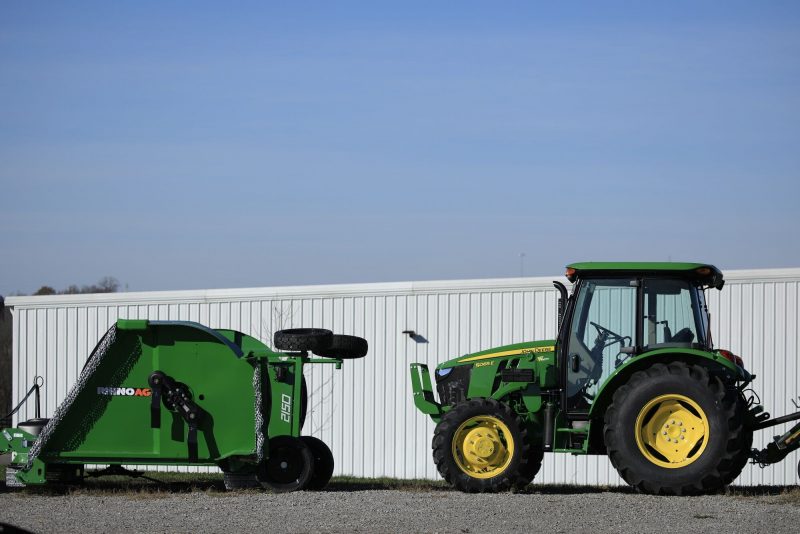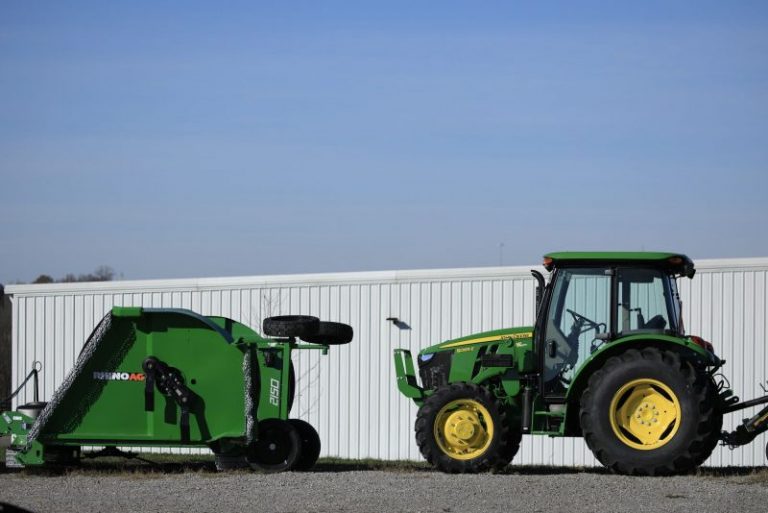
Last week, conservatives turned to Chick-fil-A to sate a ravenous appetite. Not for chicken, mind you, but for uprooting any real or perceived corporate embrace of efforts to recognize diversity.
A guy on Twitter (which is usually how these things start) realized that the company employed a man named Erick McReynolds as its vice president for diversity, equity and inclusion. McReynolds has been in that position for a while (though the aforementioned guy thought he’d just been hired) and he is tasked with “creating a culture of belonging,” among other things.
But diversity, equity and inclusion, generally shorthanded as DEI, has become anathema on the right, following a path previously walked by critical race theory.
That any company might deign to appoint someone to ensure that their employee base wasn’t uniformly White or that their consumer base’s interests were met is viewed with suspicion. It is presumed, after all, that DEI is secretly part of a broad left-wing scheme to subvert traditionalism. That Chick-fil-A would do so, though, after emerging as a favorite on the political right both for its unabashed religiosity and for previously being a target of the left? Unacceptable.
This tempest-in-a-kaiser-bun seems to have blown over without doing too much damage to Chick-fil-A. But it made me wonder: How many other brands beloved by Republicans had also been subsumed to this dangerous, novel idea that it’s worth broadening your corporate appeal as widely as possible?
YouGov conducts regular polling evaluating the popularity of brands in the United States. I contacted their team for two pieces of information: What brands did Republicans view the most positively and, secondarily, what brands did they view disproportionately more positively than Democrats?
YouGov provided me with a list of 40 brands, 20 fitting each description. I searched the website of each, looking for corporate endorsements of diversity initiatives or, given the recent brouhaha over brands like Target, LGBTQ pride.
The result? Of the 20 brands with the most positive ratings from Republicans, seven had positions, news releases or other indicators of support for diversity. Four had statements or products offering support for pride or LGBTQ people. Eight companies had at least one of each.
Of the brands that Republicans liked more than Democrats by the widest margins, 12 had at least one of each, including fully 12 companies that had some indication of support for diversity efforts. Seven also had products or statements expressing support for LGBTQ issues or the gay community.
I’ve listed those companies and their applicable pages below. The point, though, is not that these are companies deserving of outcry or condemnation. It is, instead, that corporations trying to sell things to 7.2 percent of the population or to appeal to a workforce that is increasingly diverse is completely understandable within the bounds of capitalism.
Tractor Supply (ranked fifth on the list of brands Republicans like more than Democrats) is not selling the Queer Agenda Card Game because it is trying to turn your little kid against her innate sense of attraction toward members of the opposite sex. They are doing so because they think maybe someone will buy it for $25 and they only paid, say, $15 for it and so they make $10 each time someone buys one. And if their carrying that game or employing more Hispanic people means gay or Hispanic people are more likely to buy other stuff from Tractor Supply, great.
The only thing they’re endorsing is the idea that as many people as possible should give them money. It’s the American way.
1. Dawn (85.4 percent of Republicans view positively). No apparent information about diversity or the LGBTQ community.
2. Hershey’s (84.4 percent). Hershey’s has a page expressing its commitment to diversity including a “five-year plan to make our workplace and communities even more inclusive.” It also has a statement celebrating “The Hershey Company’s deep commitment to diversity and inclusion and our support of LGBTQ employees who make our company a great place to work.”
3. M&M’s (84.3 percent). M&M’s has a program called the M&M’s FUNd (get it?) that “aims to push diversity, inclusion, and equal opportunity in the entertainment industry.”
It also sells Pride-marketed products, though a page focused on Pride that Google indexed in March no longer appears to be active.
4. Bounty (83.9 percent). Bounty’s homepage features an initiative to have a diverse group of artists provide patterns for its paper towels.
5. Ziploc (83.8 percent). No apparent information about diversity or the LGBTQ community.
6. Hershey’s Kisses (83.7 percent). See Hershey’s.
7. Betty Crocker (83.6 percent). Betty Crocker has a page noting that it has “been supporting diversity networks for its employees since the mid-1990’s.” That includes Betty’s Family, the company’s LGBTQ+ employee network.
It also has multiple recipes specifically targeted to Pride, like this Rainbow Layer Cake.
8. Clorox (83.6 percent). Clorox doesn’t have information about its diversity or LGBTQ outreach efforts, but it does have an initiative focused on engaging young people that includes fundraising for a program that engages LGBTQ college students to clean homes in the community.
9. Reese’s (83.6 percent). No apparent information about diversity or the LGBTQ community.
10. Kleenex (83.3 percent). An archive of Kleenex’s website mentions an inclusion and diversity program, but that page is no longer online.
11. Band-Aid (83.2 percent). Band-Aid has a very product-focused diversity effort, producing bandages that match a broad array of skin colors. It’s a good example of how this sort of marketing works; it’s hard to assume that the intent is somehow conversion.
12. Reese’s Peanut Butter Cup (83 percent). See Reese’s.
13. Lysol (82.6 percent). No apparent information about diversity or the LGBTQ community.
14. Pillsbury (82.5 percent). No apparent information about diversity or the LGBTQ community.
15. WD-40 (82.4 percent). No apparent information about diversity or the LGBTQ community.
16. Planters (82.4 percent). No apparent information about diversity or the LGBTQ community.
17. Oreo cookies (82.3 percent). Oreo has a page centered on Pride.
18. Energizer (82.2 percent). Energizer has a page articulating its DEI efforts.
19. Ritz (82.2 percent). No apparent information about diversity or the LGBTQ community.
20. Elmer’s (82.2 percent). No apparent information about diversity or the LGBTQ community.
1. Trump Hotels (Republicans view the brand 40.8 points more positively than Democrats). No apparent information about diversity or the LGBTQ community, perhaps unsurprisingly.
2. Ivanka Trump clothing (31.8 points). Her clothing line shuttered several years ago.
3. Chick-fil-A (23.1 points). As above, the fast-food chain has a program centered on diversity.
4. Trump Taj Mahal (22.2 points). The Trump Taj Mahal no longer exists.
5. Tractor Supply (19 points). In addition to products targeting LGBTQ customers, the company touts its efforts on diversifying its workforce. Newsweek identified it as one of “America’s Greatest Workplaces for Diversity.”
6. Bass Pro Shops (18.1 points). The company has a page describing its diversity efforts.
7. Texas Roadhouse (17.7 points). Texas Roadhouse tells prospective employees that “diversity, inclusion, and opportunity are a big part of our culture.”
8. Cabela’s (14 points). A sibling company of Bass Pro Shops, Cabela’s has a similar statement about diversity.
9. John Deere (14 points). John Deere’s career portal touts its diversity efforts. It also issued a news release celebrating that its Rainbow Employee Resource Group was recognized for its outreach efforts.
10. Cracker Barrel (12.7 points). The restaurant chain has both a page focused on “diversity, equity, inclusion & belonging at Cracker Barrel” and a page focused on its LGBTQ employees and their engagement in their communities.
11. Husqvarna (12.2 points). The lawn mower company emphasizes that it is “passionate about diversity in the workplace.”
12. Jimmy Dean (12.2 points). No apparent information about diversity or the LGBTQ community.
13. Jell-O Pudding Snacks (12.2 points). No apparent information about diversity or the LGBTQ community.
14. SpaceX (11.8 points). No apparent information about diversity or the LGBTQ community — also probably not surprising.
15. Home Depot (11.7 points). Home Depot has information focused on the diversity of its workforce and touting its partnership with the Human Rights Campaign Foundation.
16. A&W Restaurants (11.7 points). No apparent information about diversity or the LGBTQ community.
17. Rust-Oleum (10.8 points). No apparent information about diversity or the LGBTQ community.
18. Papa John’s (10.4 points). Yes, even Papa John’s has a page focused on diversity and a news release touting its 2021 recognition as being one of the best places to work for LGBTQ equality.
19. Harley-Davidson (10.4 points). Is Harley-Davidson woke? Well, its “Diversity, Equity, and Inclusion strategy focuses on three core principles: Invite Everyone In, Illuminate the Issues, and Infuse Talent.” It also has some employee groups, including E.A.G.L.E., which is focused on LGBTQ employees.
20. Bisquick (9.6 points). See Betty Crocker.
While it didn’t make either list, there is one honorable mention worth elevating here: If you are interested in working at Fox, the company has a lengthy page articulating its robust inclusivity efforts.


Comments are closed.